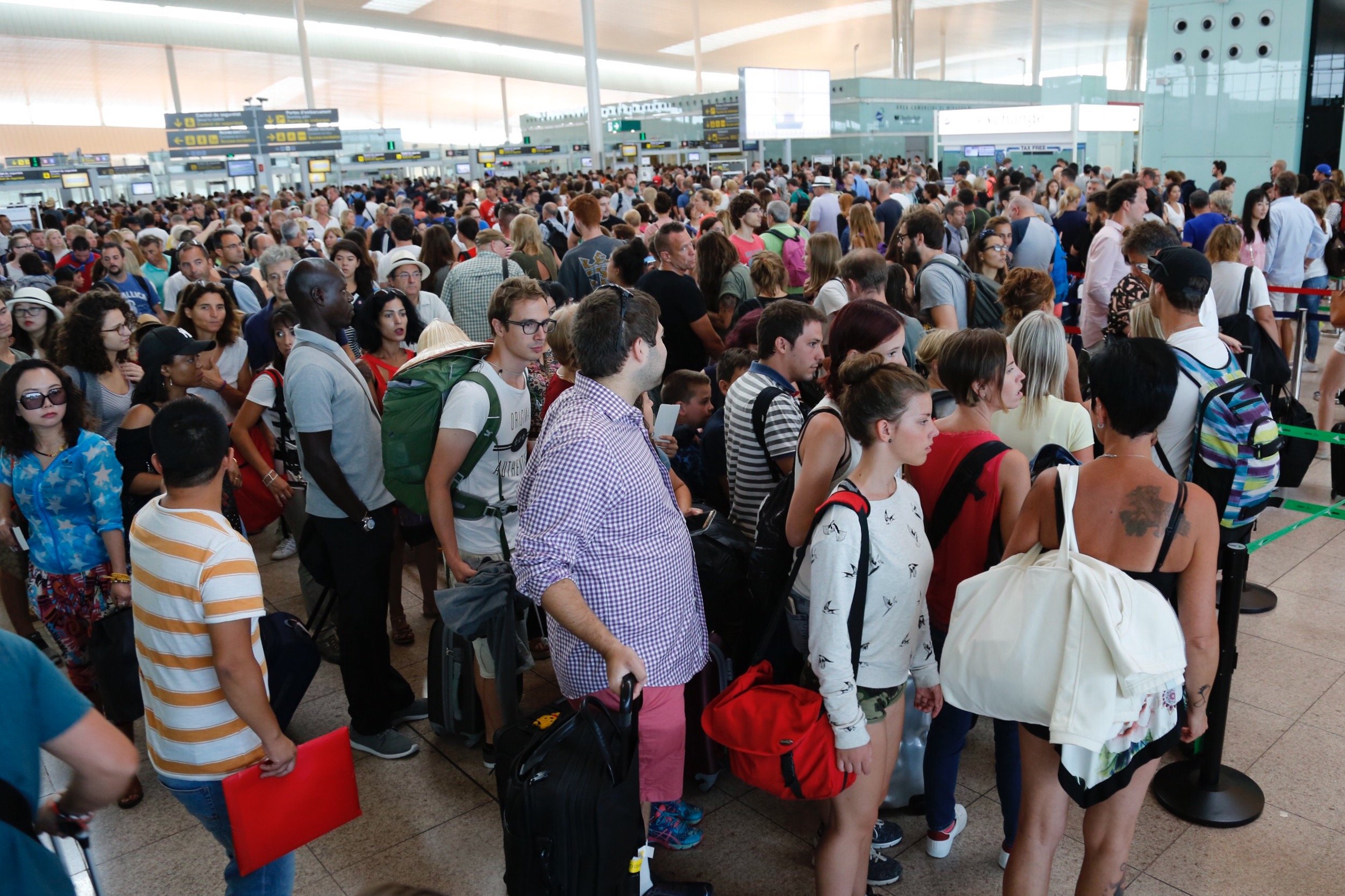They may operate all Spain's public airports, but Aena's management of Barcelona-El Prat Josep Tarradellas Aiport leaves a lot to be desired. Evidence of that comes from the repeated "black summers" which, year after year, see the airport collapsing under strikes during the high tourism season. But why does that happen so much more often in Barcelona than in Madrid?
Two years ago, the summer was marked by the interminable battle with Eulen, the company that was then managing security at El Prat. This year, summer has started busily: a strike by Iberia ground staff caused more than 150 flights to be cancelled the last weekend in July, and negotiations are not over. Now there's the threat of another strike this August, this time by security staff from Trablisa; they've called an indefinite strike, to start on 9th August. So far, they haven't managed to reach an agreement with management. The reasons cited by the two works councils are quite similar: the overloading of work, low salaries, few breaks, a large share of the workforce on provisional contracts, etc.
But whilst there is chaos at El Prat with the expected strikes and claims being made by staff, there is calm at Adolfo Suárez Madrid-Barajas Airport, which has so far only had problems with the company which supplies its fuel, but not from staff from either Iberia or Ilunion, in charge of security at Barajas. This is understandable when you look at the figures, which show the difference in workload for staff and for the infrastructure itself between one airport and the other, regardless of the fact they're both managed by Aena and have very similar passenger volumes.
The figures
El Prat has doubled passenger traffic in 10 years, ending 2018 with more than 50 million travellers, practically reaching the limits of its capacity. The strong growth of the Catalan capital's airport shows the city's tourism boom and is down in part to its status as a hub, something which Aena frequently celebrates. Barajas is still leading, however, with 57.8 million passengers in 2018. The difference between the totals is small, but in Madrid they're spread between five terminals, whilst Barcelona has only two, something which "greatly complicates day-to-day [operations]", according to members of the Trablisa works council.
More differences: El Prat sees 1,000 operations a day, with only 2,000 Iberia workers, many of whom are short term, whilst Madrid-Barajas sees 1,300 operations a day but has 7,000 workers to cover them, many fewer of whom are temporary. The ratio of operations per worker is much higher at El Prat; in the words of union spokesperson Omar Minguillón, "the workload for staff at Barcelona is much greater than for those at Madrid, and we're not complaining that those in Madrid have it better, we're complaining that we have it much worse and we want to have it good like them". As it happens, Iberia has the same share of the workload in each airport, 65%, they just manage it differently in each.
History repeats itself. The conflict is akin to the 2017 Eulen episode, when Aena was already defending itself by arguing differences in the "infrastructure and the operational needs of each airport". For example, "Barcelona has two terminals and 12 filters, Madrid five terminals and 21 filters". At that time, many started to allege there were political motivations behind the differences.
And this is the problem, according to the adviser of Trablisa's strike committee, Juan Carlos Giménez, who says: "El Prat has grown spectacularly in [terms of] the number of passengers in recent years, but the number of filters remains the same, producing saturation and an enormous overload for workers". Trablisa also sees inequality in staff numbers: El Prat has 600 permanent and 200 ancillary security staff, whilst at Madrid the numbers are 750 full-time and 450 ancillary, then there are differences in infrastructure.
And the solution? According to Giménez, it's not only about increasing recruitment and salaries, "which is basic", but also about investing in infrastructure. "Aena treats El Prat like a second-rate airport, which has to cope with the workload of a first-rate airport," he says.
In short, there are notable differences in how Aena is running Spain's largest two airports. Barcelona's started on another black summer with a complicated end to July; now we're waiting to see how August will go. Iberia's works council gave the company a week to continue negotiating, but those seven days of grace run out next Monday. Trablisa hasn't reached any agreement with its workers either. Instead, they challenged the strike in court, but currently the 24-hour-a-day strike is still set to start on Friday. Trablisa has another meeting with the council on Wednesday to make an offer.

